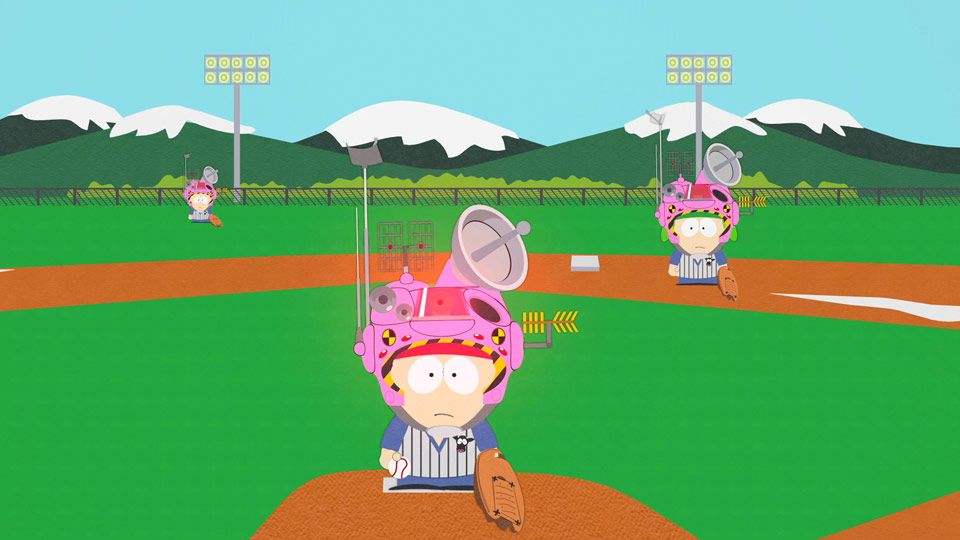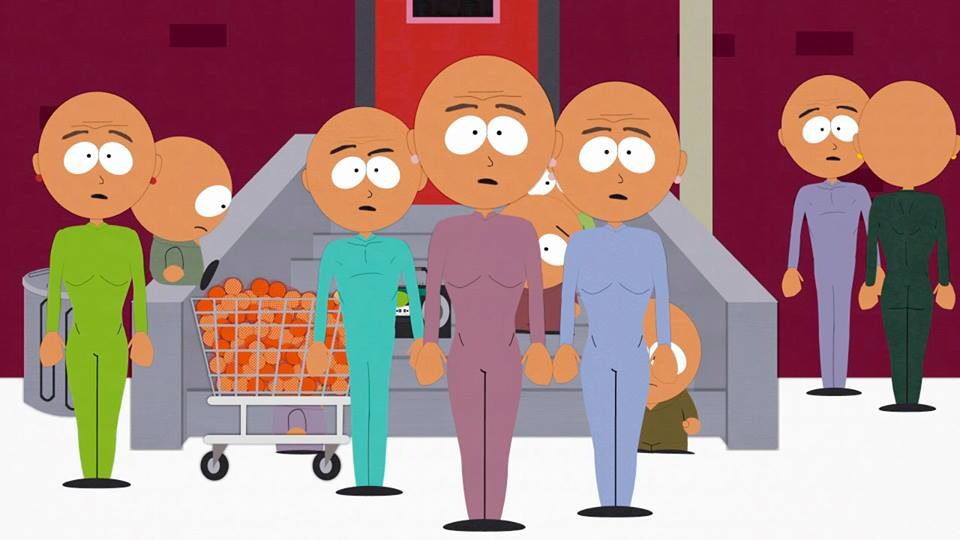Now in its twenty-third season, South Park’s younger viewers would not remember how groundbreaking the show was when it first aired and throughout its first several seasons. While the show is still controversial in many ways, the more general themes such as elementary kids swearing have long since become the norm.
Many of the episodes that air in recent seasons directly confront today’s headlines. However, in the 90’s and early 2000’s, South Park was much more tongue-in-cheek with its social commentary. So much so that certain episodes have actually become more relevant over time. Here is a list of older South Park episodes you need to re-watch in 2019.
Mr. Hankey, The Christmas Poo (Season 1)

Comedy Central
Mr. Hankey, The Christmas Poo is significant for many reasons. Besides being the first episode where Kenny doesn’t die, it provides commentary to “The War on Christmas” which has since only grown in controversy. Starbucks red cups from 2015 can’t hold a menorah candle to the outrage surrounding the 1997 South Park Elementary Christmas play.
Kyle begins the episode insecure with his Jewish heritage around his predominantly Christian friends. As the episode progresses, the more sensitive adults in South Park protest any aspect of the school Christmas play that has religious significance. In the end, the students dance in dark leotards to a song by Phillip Glass which is so terrible, a riot ensues.
Sexual Harassment Panda (Season 3)

Comedy Central
In 2019, with zero tolerance laws, many have grown concerned that the type of affection they have grown accustomed to – such as hugging or commenting on someone’s appearance – could lead to some type of litigation. Twenty years’ prior, South Park provided commentary on this exact phenomenon with a unique episode.
In that episode, a man in a panda suit visits the elementary school to teach the children about sexual harassment and the people of South Park take it to the extreme. Quickly, everyone begins suing one another for sexual harassment while resident lawyer (and Kyle’s father) Gerald Broflovski becomes rich through legal fees.
World Wide Recorder Concert (Season 3)

Comedy Central
While the A-story of World Wide Recorder Concert focuses on the boys trying to learn a note that will make a person void their bowels, it is actually the B-story which has surprising depth. Mr. Garrison alludes to past sexual abuse, but the audience quickly learns that he is upset because he was not molested as a child.
Counselor Mackey explains to Mr. Garrison’s father that because he had seen so much trauma in the news, he felt undesirable for having not gone through abuse. This is an interesting commentary on how the media has contributed to “victim culture” and there are many instances – such as the Jussie Smollet incident of 2019 – where people create fake scenarios for attention or personal validation.
Chef Goes Nanners (Season 4)

Comedy Central
Chef Goes Nanners finds one of its few black characters, Chef (voiced by Isaac Hayes, before leaving the show), demanding South Park change its official flag, which depicts several white men hanging a black man. Jimbo and Ned argue that this flag has historical significance, and convince the Ku Klux Klan (who originally want the flag to stay the same) to support Chef’s argument because it will make him look bad.
This episode fits extremely well with the controversy surrounding the Confederate flag and Confederate statues over the past several years. It also humanizes the Klan, which in itself is controversial, but also makes the members look as ridiculous as their beliefs. In the end, it’s through the eyes of children that both sides learn to understand one-another’s views, though not necessarily agree.
Trapper Keeper (Season 4)

Comedy Central
While future election-based episodes featured presidential candidates themselves, Trapper Keeper provided commentary on the 2000 Bush v Gore election by using a kindergarten class. A simple class election is turned into a hugely debated event with claims of voter suppression (lacking a vote from the absent kid).
At one point even Jesse Jackson appears to speak in favor of the “underrepresented African American students” (of which there were none in the class). While this episode primarily parodied the Bush v Gore election, the childish nature of candidates and their staunchest supporters have led to similar scenarios in subsequent elections.
Child Abduction is Not Funny (Season 6)

Comedy Central
When Tweek is almost abducted by a child predator, parents begin following their children’s every movement. It begins with a tracking helmet but quickly escalates to building a massive wall surrounding the town. This in itself can be a commentary on Donald Trump’s border wall but it also explores to what degree over-protection is detrimental to a child’s growth.
Toward the end of the episode, the parents decide that they are the biggest threat to the children and they kick the children out of town. The children then join a band of roaming Mongols who return to South Park and destroy the wall, restoring the communication between parent and child and helping everyone come to their senses.
Goobacks (Season 8)

Comedy Central
Goobacks, a highlight of South Park’s eighth season, finds humans from the future coming back in time to find jobs since none are available in the future. Quickly the residents of South Park find themselves without a job as their positions are taken by “Goobacks” who will work for less – an obvious commentary on immigration. This spawns the catchphrase “they took our jobs!” which is repeated with decreasing enunciation.
Many of the men of South Park decide to protest by having a giant orgy. Toward the end of the episode, the South Park residents realize that if they create a better future, no one will have to come back in time. This commentary lends itself well to the current situation of climate change. However, this moral is quickly ruined once they concur that the montage of everyone planting trees is “gayer than when all the men were having sex with each other.”

Omg that Garrison picture. Totally forgot about that scene.